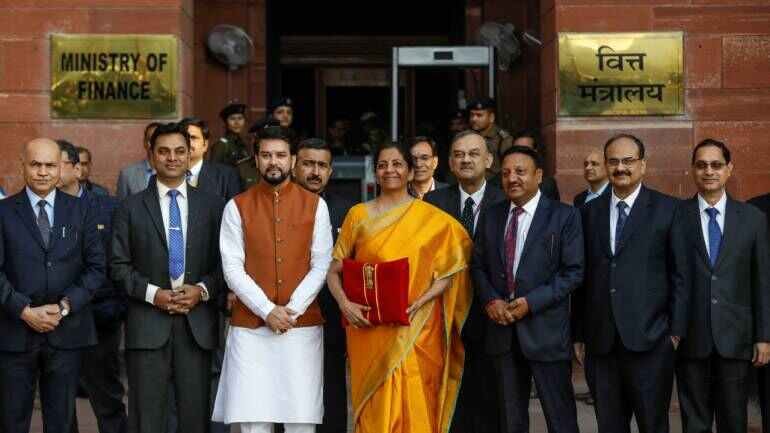The Economic Survey presented ahead of the Union Budget has already exposed the severity of the slowdown afflicting the Indian economy. GDP growth has dipped to 5% in 2019-20, the lowest since the global recession of 2008-09, with slowdown gripping all the sectors of the economy – industry, services as well as agriculture. The investment rate has fallen by 1.2% of GDP from last year. Bank credit growth has also decelerated for industry and services, especially MSMEs.
The Union Budget 2020-21, presented in the backdrop of this deteriorating economic situation, reveals a massive Rs. 2.97 trillion (lakh crore) shortfall in gross tax revenues in 2019-20 (RE) compared to the last year’s budget estimates. The drop in gross tax revenues to 10.5% of GDP in 2019-20 (RE), the lowest since 2014-15, follows the major cut in the corporate tax rate announced in September 2019, which has brought the Indian tax rate below that of ASEAN economies like Indonesia, Malaysia and Philippines. The Budget has followed the same principles of “trickle down” economics to cut income tax rates on earnings upto Rs. 15 lakh per annum and removed the dividend distribution tax on companies, which account for a combined projected revenue loss of Rs. 65000 per year.
The Finance Minister obviously thinks that such tax cuts for large corporates and affluent sections would translate into higher investment and consumption demand, thus stimulating the economy. However, this assumption of “trickle-down” is neither based on sound economic theory nor empirical evidence. In the backdrop of an economic slowdown, the rich are more likely to add to their financial savings out of their additional income through direct tax breaks, rather than invest or consume. Rather than giving tax breaks, had public expenditure been incurred of the same amount on social welfare programmes or creating physical infrastructure, the money would have reached the hands of the poorer sections of society, who have a higher propensity to consume. The Budget has walked in the opposite direction, by cutting Rs. 75532 crore from the food subsidy bill in 2019-20 (RE) and Rs. 9502 crore from the MGNREGA in 2020-21 (BE). Making a mockery of the Prime Minister’s announcement of Rs. 100 trillion investment in infrastructure in the next five years, the Budget allocated a meagre Rs. 22000 crore for infrastructure finance companies.
The expectation of an effective fiscal stimulus from the Union Budget thus stands belied. Contrary to the claim made by the Finance Minister, the minor increase in the fiscal deficit will only bolster the wealth of HNIs rather than enhancing capital expenditure and creating jobs. Moreover, in the likely absence of any significant growth recovery in 2020-21, revenues from direct taxes and GST may once again fall below budget estimates. This will necessitate further expenditure compression, unless the Government abandons the irrational pursuit of fiscal consolidation amidst a severe economic slowdown.
The Budget also misleads on the state of the financial sector, by exuding complacency. The latest Financial Stability Report of the RBI released in end-December 2019 has already reported a reversal in the trend of NPA reduction in the scheduled commercial banks, especially the PSBs. Not only has the IBC regime failed to bring about effective resolution of the stressed assets in the banking system, the bursting of the NBFC credit bubble has added fresh woes. Incidences of bank frauds have also hit a record high, with Rs. 1.13 trillion being ripped off the banking system in the first six months of 2019-20.
Rather than addressing such corporate criminality, the government appears to be in a selling spree of public assets, budgeting a record Rs. 2.1 trillion as disinvestment receipts for 2020-21, including Rs. 90000 crore estimated for the PSBs and the LIC. Gambling with the stakes of the public sector financial entities at a time of economic distress, in order to meet revenue shortfalls, is the most retrograde aspect of this thoroughly disappointing budget.
This article has first appeared in The Wire.
Prasenjit Bose is an Economist and Convenor Joint Forum Against NRC.


Leave a Reply